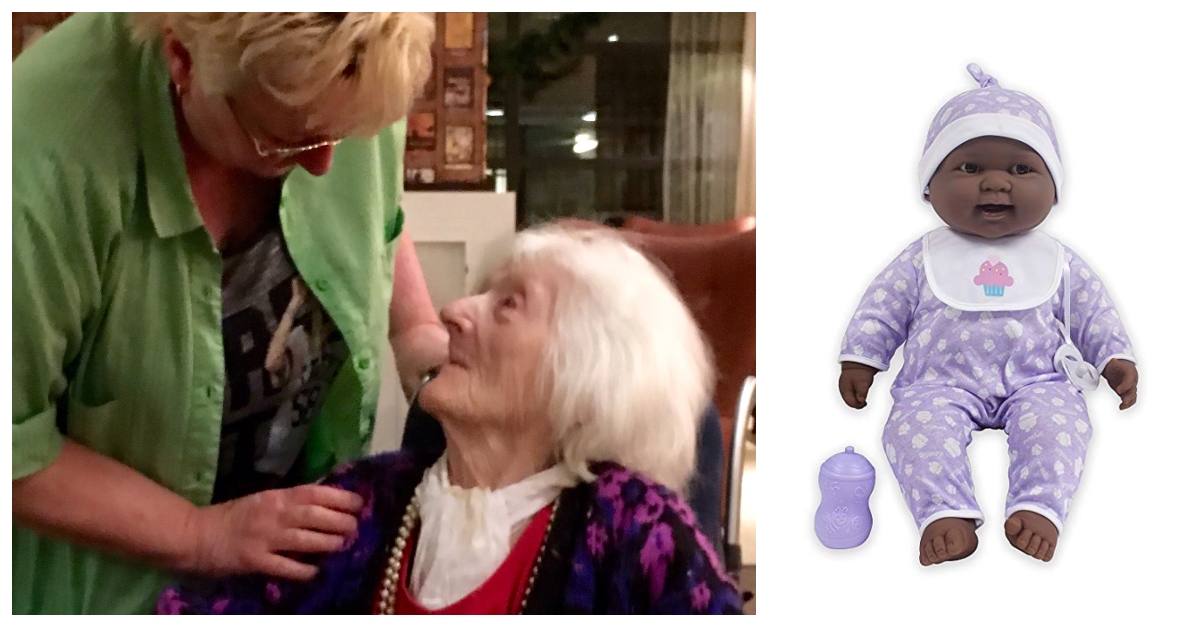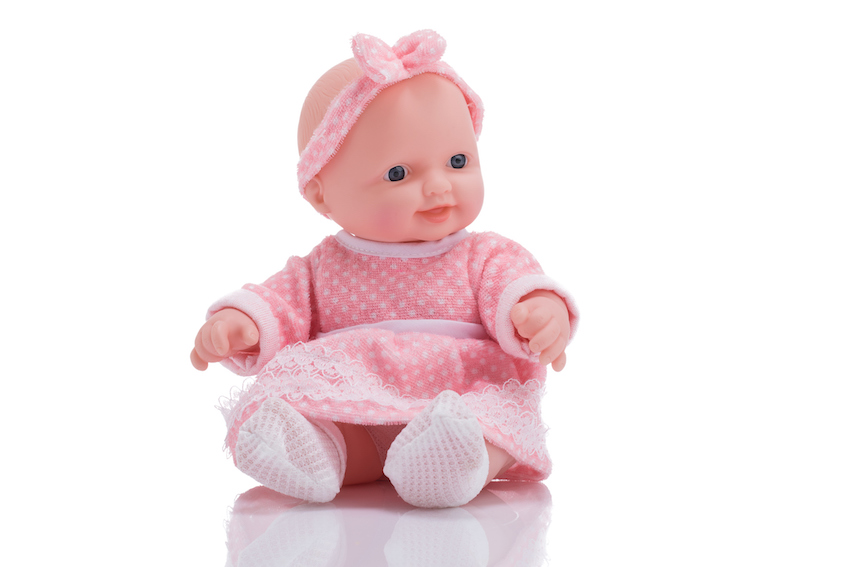
Roughly 5.8 million people in the US are living with Alzheimer's disease, and their loved ones often feel powerless to help them. But thanks to one small nonprofit, hundreds of Alzheimer's patients have a new source of comfort: baby dolls.
Pearl's Memory Babies is a nonprofit group based in Kentucky. They have donated over 300 dolls to patients with Alzheimer's disease or other forms of dementia in nursing homes in Indiana and Kentucky.
Doll therapy is increasingly popular for Alzheimer's and dementia patients, who can become anxious, aggressive, and agitated. The dolls decrease anxiety and provide comfort.
Sandy Cambron, the founder of Pearl's Memory Babies, has seen the positive effects of doll therapy firsthand. She launched the group after she gave a doll to her mother-in-law, Pearl Walker.
"She started talking again and she never went anywhere without that baby," Sandy told the Washington Post. "She took 'baby' to the dining room with her and slept with her in her arms every night."
Sandy wanted to extend that level of comfort to other Alzheimer's patients, too. So she started Pearl's Memory Babies in Pearl's honor.

Sandy Cambron first became familiar with doll therapy when her mother-in-law, Pearl, became sick with Alzheimer's years ago. Sandy and her husband gave a baby doll to her.

Over the months, the doll became incredibly special to Pearl.
"When she passed away a year later, we even buried her with that well-loved baby doll," Sandy told the Washington Post.
Sandy and her husband also gave baby dolls to all of the other women in Pearl's facility. For the men, they donated stuffed puppies.
"Their response was touching and truly amazing," Sandy wrote on her website.
"To honor her after her passing, we continued this tradition at other healthcare facilities with memory care units (as our finances could afford) through the years."
Eventually, Sandy helped her friend Shannon Blair procure baby dolls and puppies for her mother's nursing home.
Shannon shared the photos on social media, and they went viral.
And thus Pearl's Memory Babies was born.
The group is now an official nonprofit, and they have donated more than 300 dolls to nursing homes since February 2018.
"I had no idea that it would take off like this. It's a simple idea, but it works," Sandy said.
"Some people cry when you hand them their baby. Even though we don’t know exactly what they’re thinking, you can tell that the doll has helped bring back some kind of nice memory."
There are mixed opinions on doll therapy for Alzheimer's patients. It has been shown to improve communication and reduce the need for psychotropic medication.
And as anyone who has witnessed a patient receiving a doll can tell you, the dolls provide a sense of calm and comfort that few other things do.
The dolls also help engage patients who are often bored because they can't do many activities.
On the other hand, critics say that the dolls unnecessarily infantilize Alzheimer's patients.
Nobody really knows whether patients believe that the dolls are toys or actual babies.
But it's clear that the dolls bring back the memory and instinct of parenthood, which provides a sense of security.
Elise Hinchman is the marketing and development director at Sayre Christian Village, which recently received 41 dolls and stuffed animals from Pearl's Memory Babies.
"It’s overwhelming to see how they naturally fall into a rhythm of swaying, rocking and cooing," she said.
"The way they light up is like taking a step back in time. You can imagine them holding their own children."
"They are still ‘Mom’ or ‘Dad’ inside," she added. "Some residents feel a real purpose in taking care of their babies because it is ‘important’ work. That nurturing instinct is so innate, and the doll babies bring back fond memories of long ago."
To the loved ones of Alzheimer's patients, it doesn't quite matter whether the baby dolls are real or pretend. What matters is the light that they spark in patients' eyes.
As for Sandy, she now spends a lot of her time shopping for baby dolls, onesies, diapers, and other accessories.
Supporters have donated almost $15,000 to the group through GoFundMe, which will allow Sandy and Shannon to continue handing out more dolls to people who need them.




